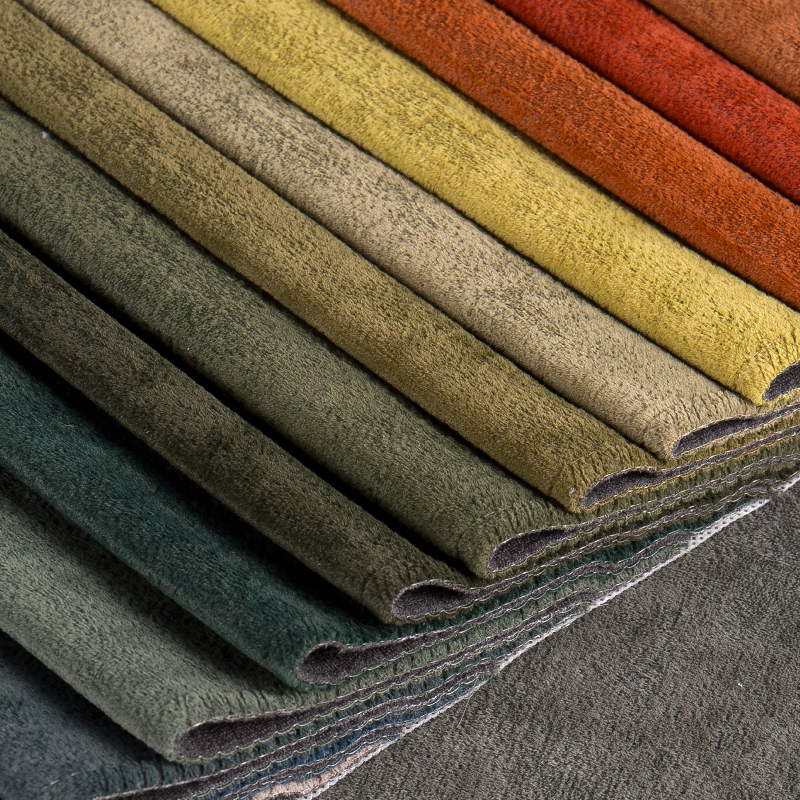Jan 20, 2025
When it comes to selecting a sofa fabric that is both stylish and comfortable, many homeowners are increasingly turning to polyester bronzing fabrics. Known for their durability, ease of maintenance, and sophisticated sheen, these fabrics have gained significant popularity in modern furniture design. However, one crucial question persists for individuals with sensitivities: Is polyester bronzing sofa fabric hypoallergenic or suitable for people with allergies?
Understanding the nature of polyester bronzing fabrics is key to addressing this concern. Polyester is a synthetic fiber, created through a chemical process that produces a material resistant to wrinkling, shrinking, and fading. The bronzing effect, often achieved through a special coating or treatment, imparts a luxurious, metallic finish, adding a touch of opulence to any room. Yet, while these qualities may be appealing, it is important to scrutinize the potential effects polyester fabrics may have on those with allergies.
The Composition of Polyester Bronzing Fabric
Polyester is derived from petroleum-based products, and as such, it does not possess the same natural properties that organic fabrics like cotton or linen do. Unlike natural fibers, polyester is more prone to retaining dust, dirt, and allergens such as pollen, pet dander, and mold spores. This accumulation can trigger allergic reactions in susceptible individuals. However, when treated with a bronzing finish, these fabrics may also develop a denser texture, which can further trap particles within the fibers.
Is Polyester Bronzing Hypoallergenic?
While polyester itself is not inherently hypoallergenic, its suitability for allergy sufferers largely depends on several factors. Polyester fabrics do not contain the proteins that are typically responsible for allergic reactions, as is the case with natural fibers like wool or silk. This characteristic might suggest that polyester bronzing fabrics are less likely to provoke allergic responses related to direct fabric contact. However, the presence of allergens trapped in the fabric's surface can still pose a problem.

The bronzing treatment applied to polyester fabrics can make the material more resistant to moisture and stains, but it does not eliminate the fabric’s ability to attract dust and allergens. The metallic coating, while aesthetically pleasing, can sometimes exacerbate the issue by creating a surface that attracts more particles. In this way, polyester bronzing fabric is neither entirely hypoallergenic nor entirely unsuitable for allergy sufferers. It simply requires more diligent cleaning and care to maintain a hygienic environment.
Suitability for Allergy Sufferers
For individuals who suffer from airborne allergies or have heightened sensitivities, polyester bronzing fabrics might not be the best choice for furniture upholstery. People with dust mite or pet allergies, in particular, should take extra precautions, as these fabrics can trap and harbor allergens. Regular vacuuming, along with periodic deep cleaning and fabric treatment, can mitigate some of these concerns. Moreover, using hypoallergenic covers or throws may provide an additional layer of protection.
On the other hand, if the primary concern is contact-based skin irritation, polyester bronzing fabrics may be more tolerable than other synthetic fibers. Given their smooth texture, they are less likely to cause irritation for individuals with sensitive skin, provided the fabric is kept clean and free of allergens.
Polyester bronzing sofa fabric offers a stylish and durable option for home furnishings. However, for those with allergies, it is essential to weigh its pros and cons. While the fabric itself may not inherently cause allergic reactions, its ability to attract and hold onto allergens makes regular cleaning essential. For individuals with severe allergies, particularly to dust mites, pet dander, or mold, alternative fabric options—such as cotton, linen, or other natural materials—may offer a safer, more comfortable environment. Ultimately, the choice of upholstery fabric should be made with careful consideration of both aesthetic preferences and health requirements.